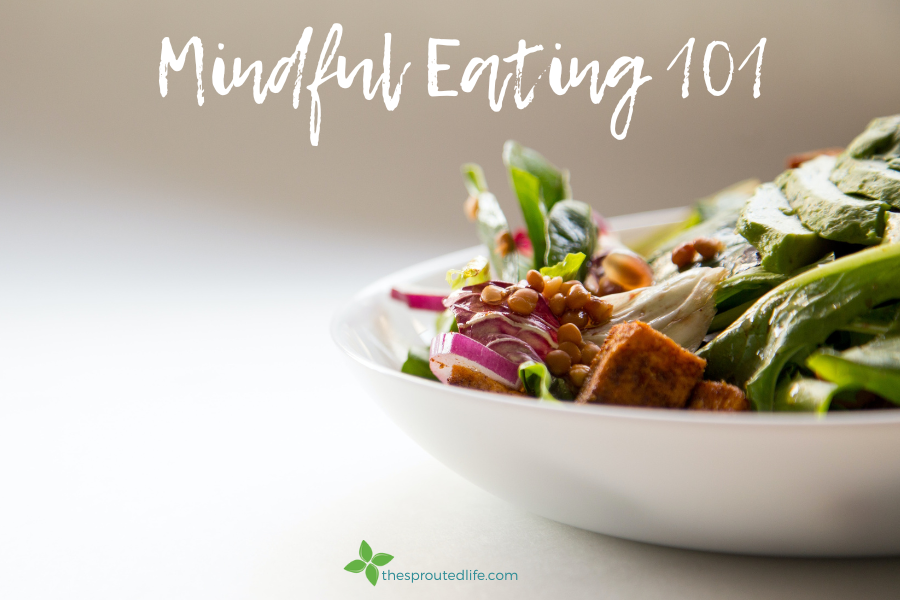Do you ever think about how you eat?
Do you grab just anything on the way to work and eat it in the car?
Do you try to eat while checking emails or working?
I know I am often guilty of this!
If you are not being intentional about how and what you eat, it may be impacting your digestive system. Mindful eating is simply eating with intention and paying attention to your food, including when, what, and how much you eat. Research has shown that mindful eating improves digestion, eating habits, and overall health. It can also have a positive impact on the emotional and psychological aspects of eating.
How Mindless Eating Affects Your Health
Poor Digestion
Thinking about food before eating it actually prepares your mind and body for the first stage of digestion because the brain starts to anticipate the smell and taste of the food, stimulating digestive juices. It also triggers the release of enzymes that will help break down the food. On the other hand, if you eat mindlessly and don’t pay attention to your food, then your brain doesn’t prepare properly. You have actually cheated your brain, and it may lead to poor digestion and weight gain.
Stress
Eating while working can increase the stress hormone cortisol. This hormone suppresses the production of enzymes, stomach acid, and saliva needed to digest food, resulting in undigested food, lost nutrients, acid reflux, gas, and bloating.
Over-eating
Mindless eating often leads to over-eating. Inhaling food quickly prevents you from noticing your body’s signals that it is full. It can result in poor digestion or even complications with your digestive system, such as inflammatory bowel disease. Our ability to digest food and absorb nutrients is also affected by stress, hormones, gut microbial imbalance, toxins, and food sensitivities.
Mindful Eating 101
Practicing mindful eating is not as intimidating as it sounds, and the more you practice, the more effortless and less of a process it becomes. It does not have to be long and drawn out, but mindful eating should be just that—mindful, intentional, and focused. Here are a few simple ways to start eating more mindfully:
1. Plan your meals, or at least what you are going to eat for your next snack or meal. Planning ahead gives your mind and body a chance to prepare for and anticipate what you will be consuming. Planning also prevents you from grabbing something unhealthy at the last minute that you will end up scarfing down in a hurry and allows you to set aside enough time to actually enjoy your meal.
2. Sit down and remove distractions. Whether you are at home, the office, or even a restaurant, make it a point to prepare your place to eat. Sit down at a table or desk and set phones, computers, or work files to the side. This is not the time to check your social media or cram in one more thing on your to-do list; this is your time to fuel and nourish your body.
3. Eat with intention. Focus on your meal. What are you eating? What are the flavors? If you made it yourself, can you taste the spices you used? What is the texture? Pay attention to how you cut the food. After you take a bite, set down your utensils. Chew for several seconds; don’t gulp. After you swallow, notice any flavors that linger in your mouth. Then, pick up your utensils and prepare another bite.
Food should be fuel for your body and should be something you enjoy. Reflect on your eating habits. If your habits do not reflect this, your eating might require a little more mindfulness.

